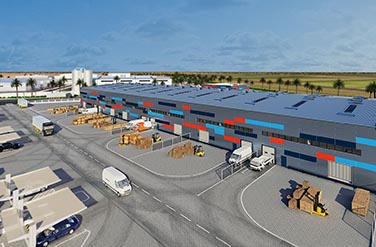In a landmark moment for digital real estate, the Dubai Land Department (DLD) has announced that its second tokenized property offering on the PRYPCO Mint platform was fully subscribed in a record time of one minute and 58 seconds. The offering attracted 149 investors from 35 nationalities, underlining the rising global interest in fractional real estate investment enabled by blockchain technology.
According to DLD, this overwhelming demand pushed the investor waiting list to over 10,700 individuals, a testament to the surging appetite for accessible, tech-driven real estate ownership models in Dubai.
The initiative is part of DLD’s broader Property Tokenization Initiative, with PRYPCO Mint officially accredited to facilitate regulated tokenized transactions.
A New Era for Property Investment in Dubai
The platform allows investors to purchase fractional shares of ready real estate assets through blockchain tokens, eliminating many of the financial and administrative barriers that have traditionally limited access to the sector. The success of the second funding round reinforces Dubai’s growing reputation as a leader in real estate innovation and financial technology.
“By enabling investors to purchase shares in ready properties through seamless and cost-effective mechanisms, PRYPCO Mint is setting new standards for market accessibility,” DLD noted in its statement.
Tokenization's Growing Role in Real Estate
P.P. Varghese, Head of Professional Services at Cushman & Wakefield Core, said the exceptional demand is “another notable signal of Dubai’s ongoing commitment to financial innovation and its willingness to explore new models that could complement the city’s evolving real estate landscape.”
He explained that tokenization enables property assets to be divided into digital tokens, giving investors the ability to hold smaller ownership stakes than typical direct transactions would allow. “For certain retail investors, this provides an accessible entry point into real estate markets that may otherwise be beyond reach,” Varghese said. “For developers and promoters, tokenization introduces alternative capital-raising structures that may sit alongside traditional financing.”
Beyond the Hype: Costs and Valuation Risks
Despite its promise, tokenization is not without challenges. Varghese cautioned that the technology does not override the core principles of real estate investment. “Location, asset quality, tenant profile, management, and long-term demand continue to underpin any asset’s performance, irrespective of how ownership is structured,” he noted.
“Tokenization changes the mechanism of access; it does not replace commercial discipline.”
He also pointed out the potential drawbacks, especially for small-ticket investors. While tokenized platforms often tout efficiency, actual transaction costs—such as platform fees, blockchain gas charges, legal compliance, and dividend processing—can significantly erode returns. These factors are particularly pronounced when investments are made in small amounts, where fixed costs become proportionally larger.
Valuation is another area of concern. While tokens can be traded continuously, their price may not reflect the true capital value or income performance of the underlying asset. “Speculative demand could push token prices above fair value, while illiquidity in secondary markets may result in steep discounts,” Varghese added, warning that these inconsistencies introduce new forms of pricing risk for institutions.
Future Outlook: Toward a Hybrid Investment Model
Varghese emphasized that tokenization currently serves as a complementary tool to traditional real estate structures—but this may change. “While institutional capital today prioritizes full asset control, clear governance, and operational oversight, these preferences could evolve as the technology matures and regulatory frameworks solidify,” he said.
In a market like Dubai, where much of the real estate inventory is managed by sovereign-backed or master-developer entities, tokenization may in fact benefit from this concentration. “These large-scale entities possess the regulatory relationships and operational sophistication to develop institutional-grade tokenized products that could eventually attract serious capital flows.”
The DLD’s initiative, Varghese added, is a strong early indicator of growing regulatory support. As tokenization platforms demonstrate their ability to enhance transparency, enable programmable governance, and offer real-time data insights, traditional investment barriers may gradually erode.
Still, hurdles remain. Limited market depth, platform fragmentation, and regulatory uncertainty continue to restrict widespread adoption. The ultimate success of tokenization may lie not in fully replacing conventional models but in blending with them. Hybrid frameworks that combine blockchain-enabled accessibility with the oversight and structure of institutional-grade real estate could offer the best of both worlds.
“In the end, institutional capital will follow wherever superior risk-adjusted returns and operational efficiency converge,” Varghese concluded.




